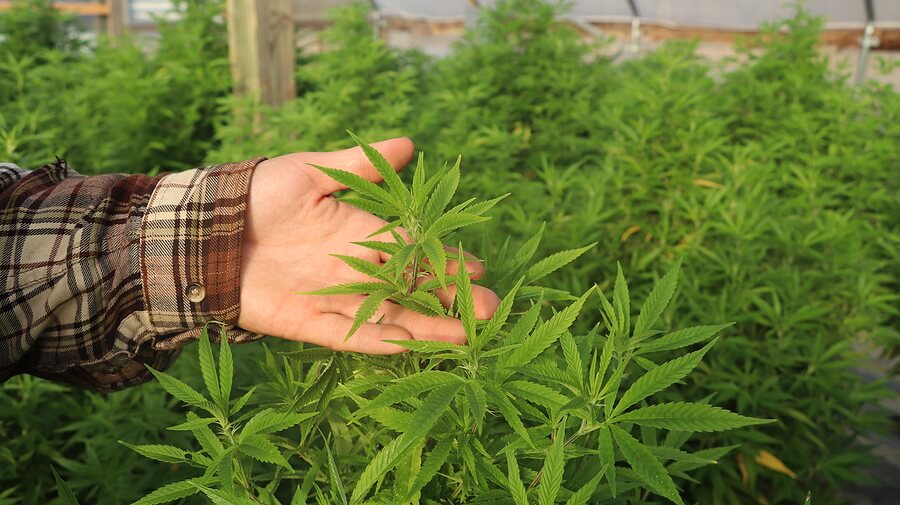Noticeably, more and more states have opted to legalize cannabis, whether for recreational or medicinal purposes. It will be needless to say that the effect of the legalization has been very incredible. Rewards and perks were notable as the cannabis industry progresses. Thus, it is fair to figure out the brilliance of the cannabis industry through the different rewards offered.
The legal alterations have produced a prospering industry of legal cannabis businesses, including those that target to study and improve cannabis-infused medical products, those that are aiming to circulate and cultivate cannabis, and more. Altogether, more than one-half of the states have medical cannabis laws on the books, while nine states have approved some amounts of cannabis for recreational consumption too.
The economic rewards of legalizing cannabis have been obvious, while the first states have opted to alter their legal standings. Generally, legal cannabis could imply a significant push for state economies and huge bucks for the federal governments and the state.
Effect on Tax Revenue
Better than what was anticipated, the sales of cannabis in Washington and Colorado over the past years have led to resilient tax revenues. Colorado, in 2019, earned over $302 million worth of taxes and fees on recreational and medical cannabis. Sales in the state accumulated to more than $1.7 billion. It was predicted that the sales could even go up to $31.1 billion in 2024, based on the report of ArcView Market Research and BDS Analytics.
A local study reinforces this perception, as well. A study of the Colorado State University Pueblo’s Institute of Cannabis Research had newly discovered that the legal industry of cannabis had given over $80.8 million to the economy in the local, mainly in the means of taxes as well as other fees.
If cannabis is legalized on a federal level, the rewards to the economy can be extraordinary.
Jobs and Income
As more states have legalized cannabis and the sales in the legal states keep on maturing, the industry is going through a comparable growth in job openings for each kind of employment. The pattern will keep going.
Building cannabis dispensaries and nurseries could be the first approach for the states that favored the use of medical cannabis. This will not only open job opportunities but also roll the ball for economic enterprise in the cannabis industry in these sectors. For the states of Nevada and California where certain framework already occurs, the effect on the economy has been more measurable as the area has been cultured.
The study of the 2016 RCG Economics and Marijuana Policy Group on Nevada tells that the legality of recreational cannabis in ten states may promote more than 41,000 employments until 2024 and create more than $1.7 billion as income on labor.
The study of ICF calculates a minimum of 81,000 more induced, direct, and indirect jobs in California as an output of authorized cannabis sales. Also, it predicts growth in accumulated labor income at a minimum of $3.5 billion.
The report of New Frontier forecasting the effect of federally authorized cannabis imply that nationwide authorization can create 1 million jobs in 2025, These employments will likely originate from rapidly progressing industry which could break out throughout the nation.
Workers are expected to do farm, processing, distributing, and selling cannabis-based products. Moreover, there could be enough openings for subsidiary industries that were associated with legal marijuana even though not immediately concerned in the production as well as distribution. These may involve financing services, software developers, construction companies, and more.
Cannabis companies progressively offer aggressive benefits and rewards. For instance, the number of companies doing cannabis business that offers no benefits package reduced by 7.5 percent, while those that provide vision and dental coverage grew by 1.5 percent. Nearly 80 percent of the employees in the cannabis business have time off.
One factor for enhanced rewards and improved benefits is employee retention that continues to be a pain point for the industry of cannabis. It is particularly hard to keep employees in positions that require extensive hours like harvesting and budtending.
The rate growth of the industry is expediting. Per figure given by the cannabis staffing agency, the industry created a 690-percent growth in job listings. The rush in fresh jobs directed to the growth of the average salary, reaching up to 16.1 percent.
It was expected that another 220 percent leap in job openings, contributing more ascending pressure to compensations and rewards, which will attract more first-rate talent to think about taking a career in the cannabis industry. In return, that will make grown competition in cannabis companies to look and retain the best-skilled people. The vigor could play out at each level in the food chain of cannabis employment, from drivers and trimmers to managers, directors, compliance specialists, and more.
Rewards Enjoyed by the Employees
A published report analyzed the benefits received by cannabis employees. The survey specified the following rewards and benefits:
- Paid vacation
- Paid sick leave
- Maternity leave
- Paid family leave
- Paternity leave
- Nursery
- Child care
Another concern is whether all employees are given the benefits, or just a few ones – probably those who have a long term when it comes to seniority. The size of the business is likely the determining factor.
For instance, under the ACA (Affordable Care Act), companies that hire 50 employees or more should settle a tax penalty if they do not give health insurance. Once again, the use of the services of the insurance broker who knows the kind of business you have can be beneficial.
Another alternative is to find the assistance of a cannabis industry-fixated HR management firm that can offer, for an equivalent cost, ACA management to assist bigger retailers in staying in conformity with ever-altering health care needs.
Investments
Legal cannabis suggests the feasibility of incredible rewards to the economy, both nationally and locally. It can also help achieve the portfolios of the investment of the investors throughout the country and even beyond.
As cannabis stays non-legal on the level of the federal, it is hard for the investors to take advantage of the progress of the cannabis industry. The total number of cannabis-related firms dealing on the public stock exchanges is very small, and while the investors have the alternative of operating with OTC exchanges, a lot of the most victorious businesses during the early authorized cannabis space were from Canada or another part of the world.
If cannabis is legalized on the national level, cannabis companies shall have the liberty to account their stocks on the entire US exchanges, by that improving liquidity as well as granting more entry to more investors. Should the rate of progression for the cannabis space keep going as they do in the current years, it is common that the investors will express an intense inclination in the industry.
Saved Money
If putting into consideration the economic rewards of legal marijuana, it is imperative to perceive the money that could have been saved and also the profit that can be developed with such a process. Nowadays, federal cannabis enforcement values a few billion dollars each year.
A report by the American Civil Liberties Union in 2013 discovered that the values during that period were roughly $3.6 billion every year. The higher number of states that authorize cannabis, the lesser the amount of enforcement could seemingly be.
If cannabis were legalized nationally, these amounts would significantly drop. If cannabis were taken out from the list of regulated substances, far lesser cases, including the substances could go to preliminary, leading in lesser restraints, and in return, save more money.
Legalized cannabis also offers the reward to medical users of marijuana-based products. While cannabis turns legal in many parts of the country, it will be typical for the price to decline generally as an output of commoditization. It may not instantly appear favorable news for general tax profit or for cannabis firms aiming to magnify profits.
Nonetheless, people who are using cannabis-based products for medicinal purposes could get the rewards of the considerably lower prices.
Conclusion
There is enough dismissal against the perception of legalizing cannabis throughout the country. Experts see the potential for disorientation among the law enforcers targeting to hold on with changing regulations, an issue about the growing displacement or minor consumption of the drug, the probability for reduced property values, and more.
Some are meant to altering the regulatory condition of cannabis just because it implies a modification to the current situation. All of these things blend to reduce the probability that cannabis can be legal nationally soon.
Nevertheless, as more number of states shift to independently legalized pot consumption in different ways, and while the economic rewards of a legal cannabis industry happen, there are also numerous coercive reasons to ponder on nationwide legalization. In the end, every company should identify for itself how to entice and retain talent. Rewards and compensation will play a big role.

